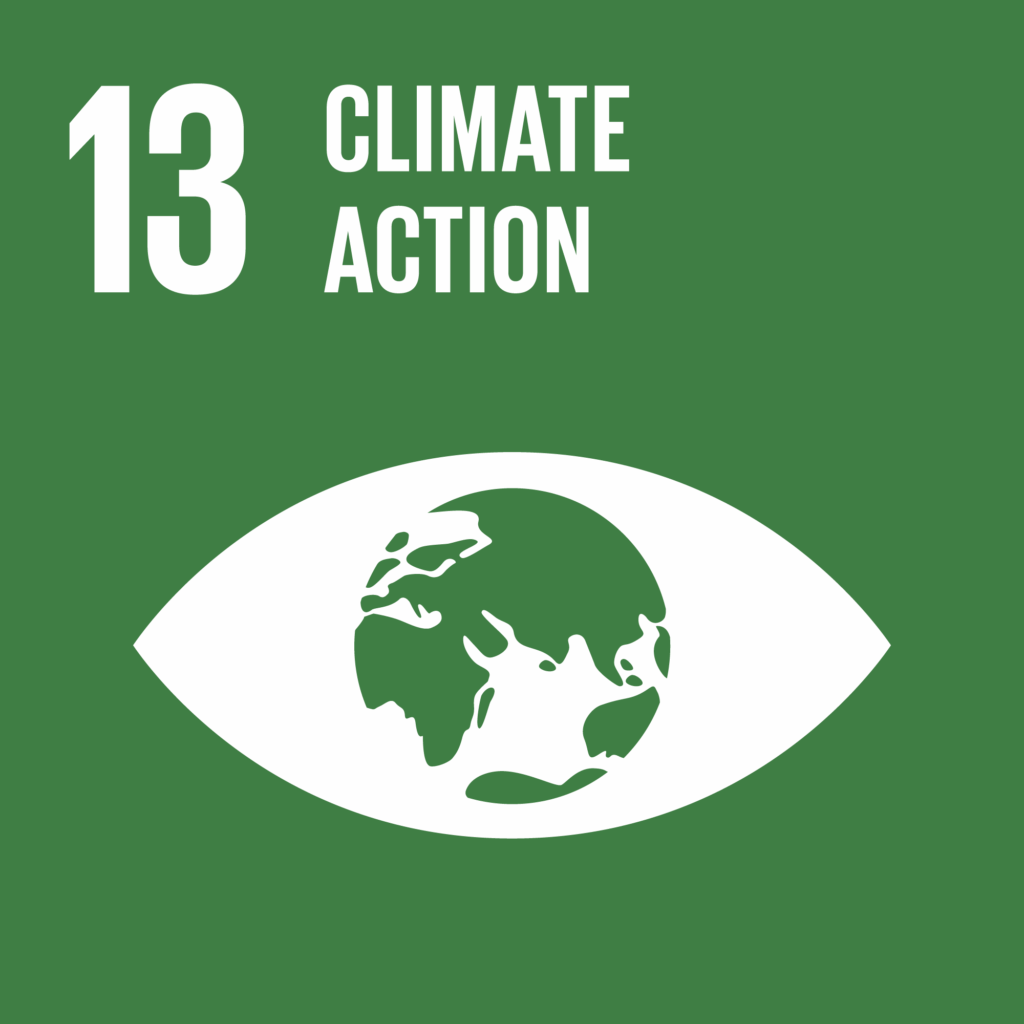SDG 13 – Climate Action

Climate change is a real and undeniable threat to our entire civilization.The effects are already visible and will be catastrophic unless we act now. Through education, innovation and adherence to our climate commitments, we can make the necessary changes to protect the planet. These changes also provide huge opportunities to modernize our infrastructure which will create new jobs and promote greater prosperity across the globe
Copyright: United Nations
FAU actively contributes to climate literacy by organizing and hosting accessible educational programmes and campaigns around climate change, addressing its risks, impacts, mitigation, adaptation, impact reduction, and early warning strategies:
- Public Climate School @ FAU: As part of this nationwide initiative, FAU integrates climate-related topics into its teaching, offering workshops, lectures, and materials involving faculty and students in awareness creation across themes like adaptation and mitigation.
- Lecture series “(FA)U against CO₂: Let’s Make Europe Better Together!”: A public lecture series organized by students and FAU staff, covering interdisciplinary aspects of climate change, including energy systems, climate impacts, and policy solutions.
- ClimaTePD (Teachers’ Professional Competence Development on Climate Change): An Erasmus+ continuing education initiative designed to enhance teacher competencies in climate change education through both synchronous and asynchronous digital training.
These initiatives are publicly accessible and involve diverse stakeholders—students, faculty, teachers, and the broader community—supporting climate education beyond standard curricula.
FAU is actively involved in co-operative planning and knowledge transfer to help governments respond to climate-induced disasters and displacement:
- Through the SASSCAL 2.0 initiative, FAU collaborates with governments and scientific partners in Southern Africa to co-develop IoT-based environmental monitoring and early warning systems, strengthening resilience to climate change impacts.
- At the “Climate (Im-)Mobility” Summer School, jointly hosted with the German Institute for Human Rights, FAU brings together students, policymakers, and practitioners to address issues of climate-induced migration, governance, and adaptation strategies—including displacement planning.
These engagements demonstrate FAU’s commitment to intergovernmental collaboration in building anticipatory, climate-resilient policies and systems.
FAU plays an active role in supporting local and regional authorities by providing expertise on early warning systems and climate-related risk monitoring:
- In the project “SÜS-Kom – Starkregen-Überflutungs-Schutz in Kommunen”, FAU researchers are developing geospatial early-warning software that identifies flood-vulnerable areas during heavy rainfall. This system integrates terrain, vegetation, soil, and weather data to alert property owners and local authorities via SMS, email, or app, providing a scalable model for municipal flood disaster preparedness and real-time monitoring.
FAU engages proactively in collaborations with civil society and NGO partners to enhance climate adaptation and resilience, exemplifying its commitment to transdisciplinary dialogue, inclusive planning, and innovative governance approaches:
- forum1.5 & Climate Connect: Regional Adaptation Platforms
FAU plays a founding role in forum1.5, a regional sustainability platform engaging NGOs, academia, government, and business in climate transformation. FAU also supports activities allied with Climate Connect, strengthening local-global exchange on climate solutions. - Expert Study on Climate Migration
In collaboration with the German Institute for Human Rights, FAU’s Human Rights Clinic produced a legal expert study addressing protections for climate migrants, contributing evidence-based insight into policies underlying adaptation and human resilience.
FAU continuously measures energy consumption in all of its buildings and makes information on energy publicly available.
All of the electricity used at FAU is green electricity.
FAU’s heating requirements are met by fossil natural gas and district heating. The district heating currently purchased is still largely generated from fossil fuels. In Erlangen, the fossil fuel share is 100%, while in Nuremberg it is at 80%. In the future, district heating in both cities is planned to be climate-neutral.